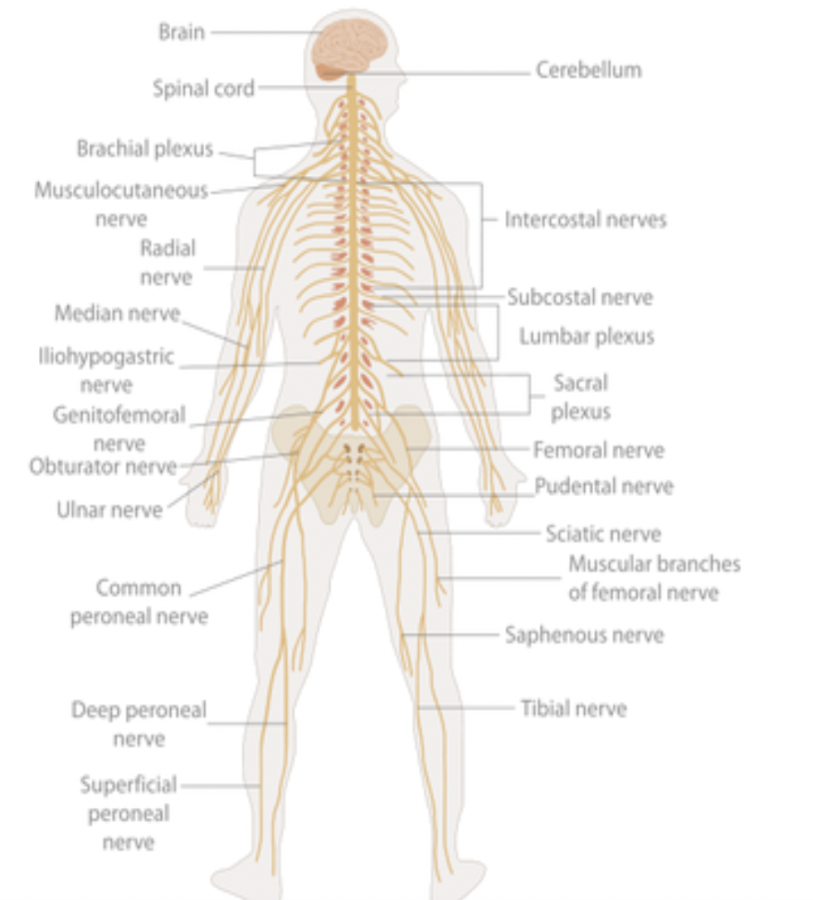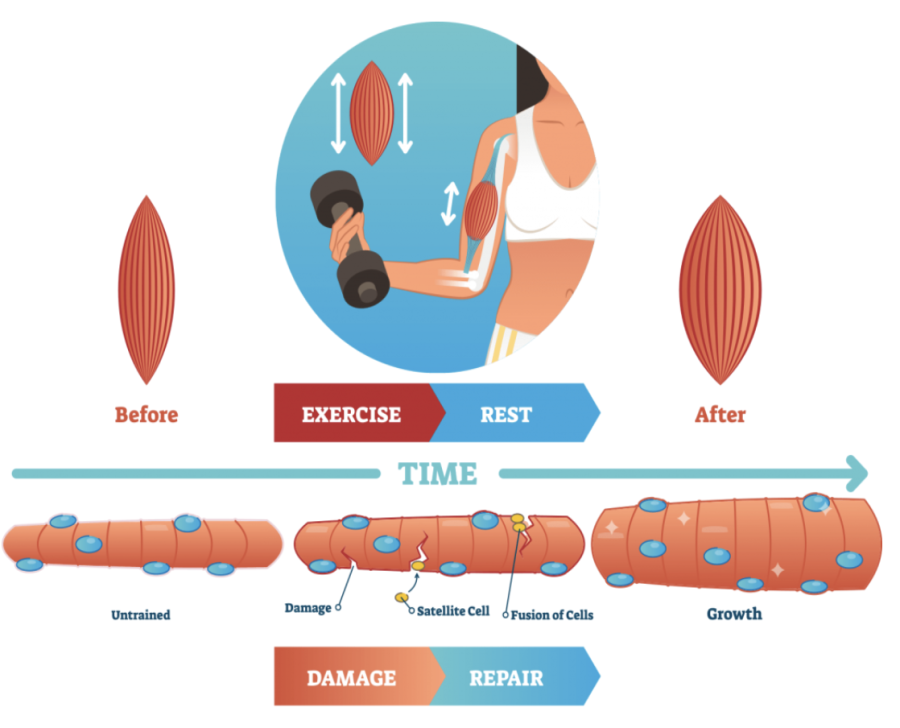The Impacts of Exercise on The Neuromuscular System and Our Body
May 17, 2023
The Effects of Exercise on The Neuromuscular System
Hey Sailors! As summer comes around, many of us might pick up some additional hobbies. Some of us adopt small tasks like coloring, painting, or new workouts; however, what does exercise really do for us? Well, exercise generally has the greatest effect on our neuromuscular system, the system in our bodies that links the nervous system and muscles in our body that allows us to move. But how does exercise directly affect our muscles and nervous systems? What types of exercises have the greatest impact on this system, and what benefits can we draw from this research?
First, in order to properly understand how exercise affects our neuromuscular system, we must have a greater context of what our neuromuscular system is, and what it does. Well, with over 600 skeletal muscles in our body, each one of these muscles contains nerve fibers with work to initiate 3 main functions: To move our body, provide stability to our joints, and produce heat. Furthermore, our muscles almost never work together, but instead work in groups, meaning that when we exercise, we do not just affect one muscle, but instead many simultaneously. In short, the Neuromuscular System is a system of nerve fibers in our muscles that work throughout our entire body when acted upon.

Next, what exact effects does exercise have on our neuromuscular system? Well, one of the most direct and physically observable effects is that of muscle hypertrophy. Muscle hypertrophy is when exercises, such as resistance training and weightlifting, cause the growth of muscle due to a growth in nerve fibers. Overall the process of muscle hypertrophy is the increase of muscle mass through strength training exercises. Another direct effect of exercise on our neuromuscular system is motor unit recruitment. Motor unit recruitments are directly affected through consistent exercise which allows for muscles to have more beneficial muscle contractions. Muscle contractions, if coordinated, allow for the body to better produce heat, improve coordination, and provides overall joint stability. Now you may notice that the benefits of motor unit recruitments are almost identically similar to that of the functions of the neuromuscular system. This is because exercise allows for motor unit recruitments allowing our muscles and their nerves to carry out their jobs in a more efficient manner. Lastly, although the effects of exercise on our neuromuscular system are broad and numerous, there are many positive effects of exercise on our neuromuscular system; the most prominent being neuroplasticity. Neuroplasticity has been shown to be linked to one of the many benefits of exercise. In fact, neuroplasticity allows the brain to improve cognitive function and reorganize after injury. Essentially, exercise can allow your brain to react and reorganize better and faster in the face of new and unknown stimuli.

With the short descriptions and images, I hope you now feel more informed about the overall benefits of exercise on our neuromuscular system, and how it affects your body as a whole as the summer comes around. Feel free to visit the works cited below to do additional research on this topic if interested!
- https://www.medicalnewstoday.com/articles/muscle-hypertrophy#:~:text=Muscular%20hypertrophy%20refers%20to%20an,normally%20associated%20with%20weight%20lifting.
- https://emedicine.medscape.com/article/1141359-overview
- https://training.seer.cancer.gov/anatomy/muscular/#:~:text=In%20addition%20to%20movement%2C%20muscle,a%20result%20of%20muscle%20contraction.
- https://www.ncbi.nlm.nih.gov/pmc/articles/PMC6296269/


